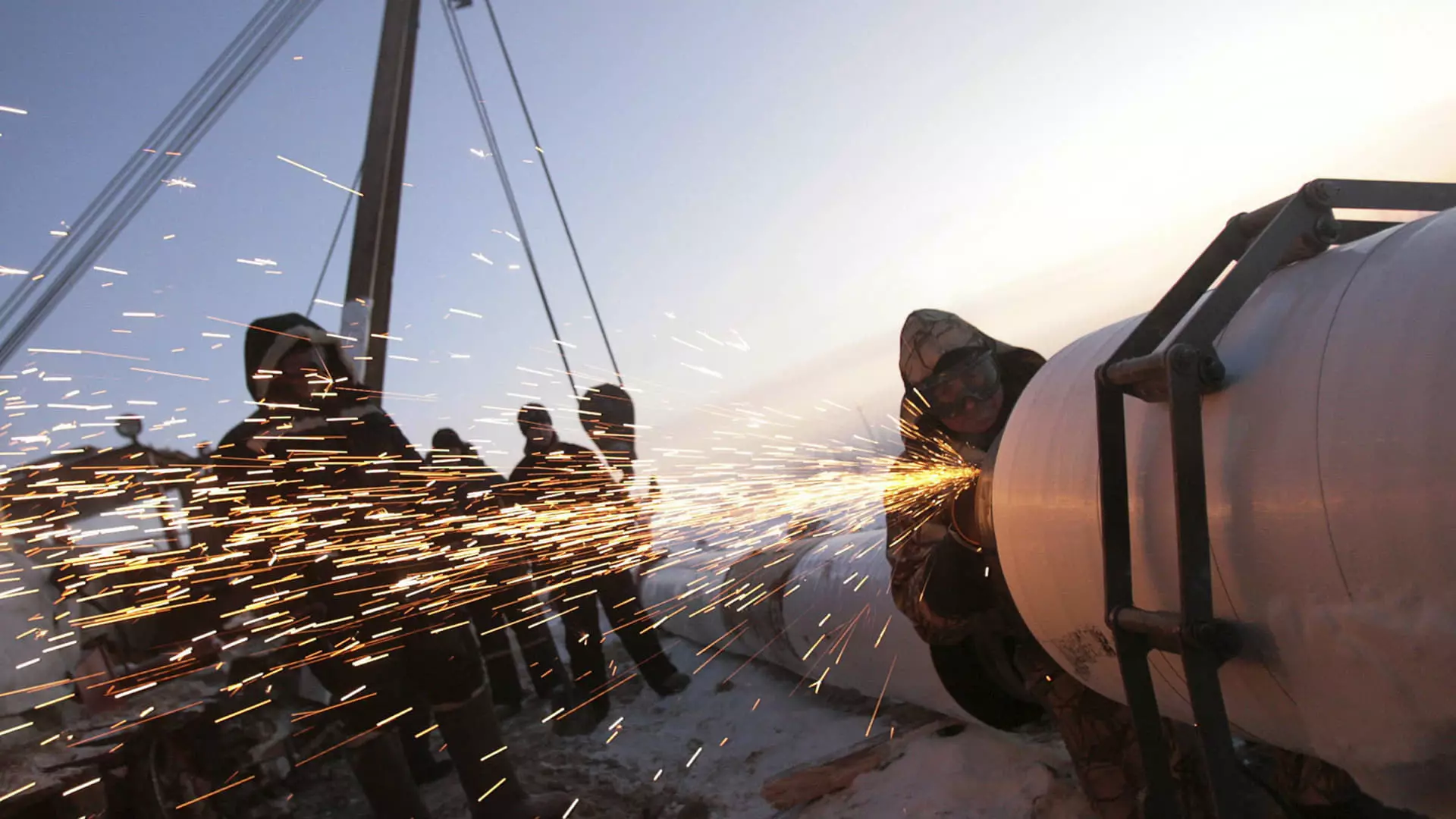The landscape of European energy supply has been irrevocably altered following the onset of the Ukraine conflict, significantly diminishing Russia’s role as the continent’s primary gas supplier. The recent developments regarding Gazprom, Russia’s state-owned gas company, provide insight into the shifting dynamics of energy dependence, geopolitical leverage, and the evolving energy market in Europe. This article explores the implications of reduced supplies, the historical context surrounding Russian gas, and the consequential impact on both European economies and Russian gas exports.
Once a dominant force, supplying approximately one-third of Europe’s natural gas, Russia’s influence has waned dramatically. The conflict in Ukraine catalyzed this decline, leading to the cessation of crucial supply routes and the severing of long-standing energy relationships. One striking example is the Urengoy-Pomary-Uzhgorod pipeline, a relic of the Soviet era, which is expected to halt operations by the end of the year. This cessation signifies not only a logistical setback for Russian gas supply to Europe but also reflects Ukraine’s unwillingness to extend critical transit agreements.
Despite Gazprom’s anemic attempts to maintain gas deliveries—such as the reported flow of over 42 million cubic meters per day—actual shipments have diminished due to the fallout from the war and dwindling demand from European countries. The recent halt of gas supplies to Austria’s OMV, attributed to a successful arbitration claim against Gazprom, underlines the financial complications and deteriorating trust between European energy companies and the Russian gas giant.
The geopolitical shifts following the Ukraine conflict have prompted the European Union to actively seek alternative sources of energy, aiming to curtail dependence on Russian supplies. This quest for energy diversification has led to increased reliance on suppliers from Norway, the United States, and Qatar, thereby diminishing Gazprom’s market share, which has fallen from a peak of 35% of Europe’s total gas supply to a fraction of that today. The ramifications are far-reaching; not only have Western European nations secured new sources, but they are also actively collaborating on policies to ensure a collective reduction of Russian energy reliance.
As such, the economic impact extends beyond Russia’s revenues. Europe strives to stabilize its energy markets, with nations like Austria reporting a steady supply of gas despite the disruptions, largely buoyed by alternate agreements. However, the ultimate fate of Russian gas exports relies heavily on remaining customers, primarily Hungary and Slovakia, which might soon face the reality of European diversions away from Russian gas altogether.
To understand the full implications of the current energy crisis, one must consider the historical context of Russian gas supply to Europe. For decades, the Soviet Union and now Russia cultivated deep energy ties with European nations, establishing an intricate web of dependency that benefited all parties involved economically. This relationship was built on a foundation of strategic planning by Soviet leaders, who recognized the importance of European gas markets following World War II and invested heavily in infrastructure to facilitate these long-term agreements.
However, the recent crises—including the sabotage of the Nord Stream pipeline—have shattered this intricate network, raising questions about the future of Europe’s energy security. Accusations surrounding the explosions, whether they be directed at Ukraine, Russia, or Western nations, have intensified divisions and further strained the prospect of cooperation in energy matters. Trust, once taken for granted, has become a scarce commodity in diplomatic relations concerning energy.
As Europe forges ahead, the challenge lies in ensuring energy security while simultaneously pursuing climate goals and sustainability. The International Energy Agency highlights the importance of alternative supply routes, suggesting that the European market can meet its demands without Russian supplies, but the transition will require significant investment and cooperation among EU nations.
The future of European energy is poised for transformation, marked by increasing interconnections, renewable integration, and energy efficiency pursuits. While Gazprom has undeniably suffered from the ongoing geopolitical turmoil, it also signals a chance for Europe to redefine its energy future—one that is more independent and resilient against external pressures.
The decline of Russian gas influence in Europe embodies the complex interplay of energy, geopolitics, and historical relationships. As Europe paves a new path forward, it must navigate the challenges posed by energy dependence while embracing a future characterized by sustainability and collaboration.



Leave a Reply